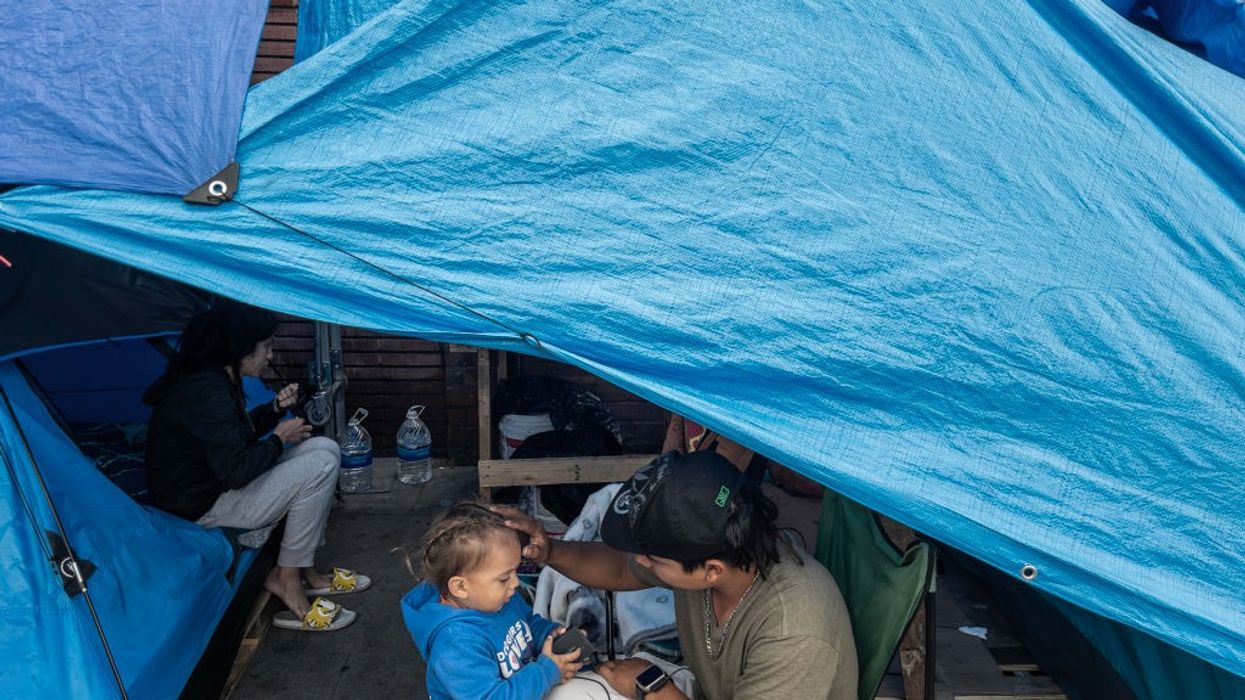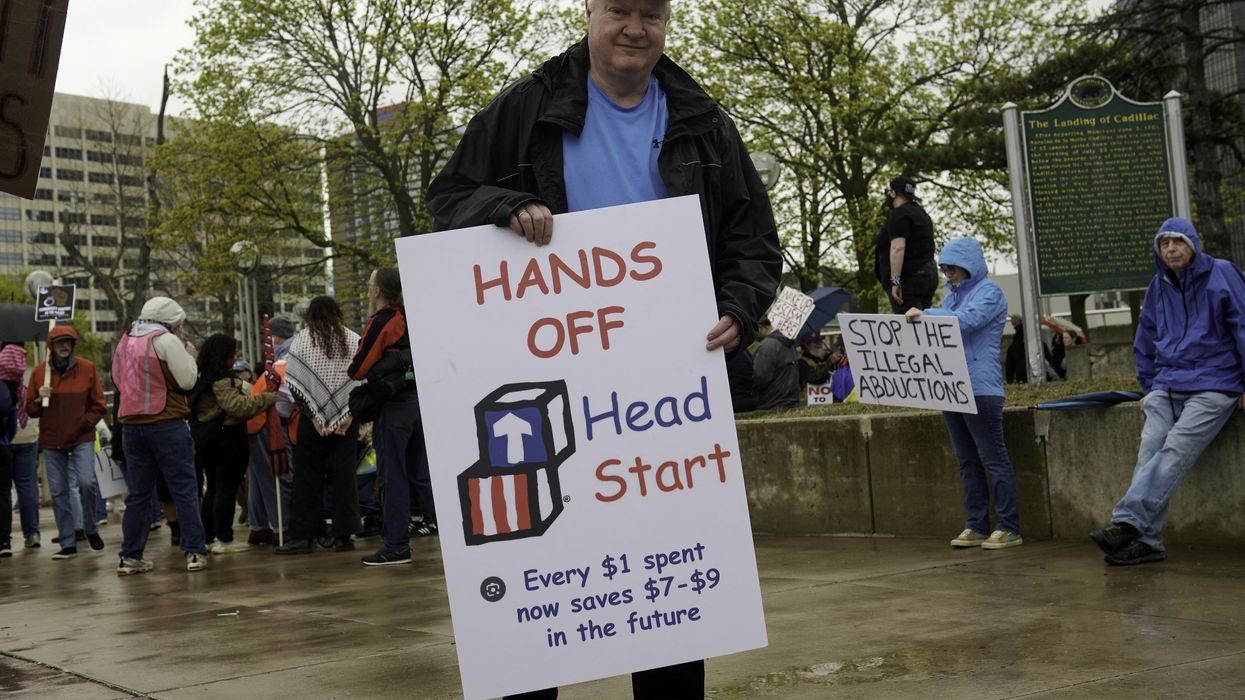As The New York Times reported Monday, White House aides have met in recent weeks with policy experts and advocates for boosting U.S. birth rates, which have been declining since 2007.
Simone and Malcolm Collins, activists who founded Pronatalist.org, which they describe as "the first pronatalist organization in the world," told the Times that they have sent multiple draft executive orders to the White House, including one that would bestow a "National Medal of Motherhood" on women who have six children or more—a scheme with history in numerous fascist regimes, including those of Italian dictator Benito Mussolini, Nazi leader Adolf Hitler, and Soviet leader Joseph Stalin.
Other proposals aides have discussed would reserve 30% of Fulbright scholarships for people who are married or have children; grant a $5,000 "baby bonus" to families after they have a baby; and fund programs that educate women on their menstrual cycles so they can use "natural family planning" and determine when they are able to conceive.
"Just so we're clear: Instead of teaching kids about birth control and sexual health, the government would fund programs that teach little girls how to get pregnant," wrote Jessica Valenti at the Substack newsletter Abortion, Every Day.
The latter proposal would likely be offered without offering women any information about contraception or other comprehensive sex education, which President Donald Trump vehemently opposed in his first term.
The administration's "pronatalist" push has been steadily building since before Trump won the presidency. During the campaign last year, Vice President JD Vance provoked an uproar when he doubled down on his comments from 2021 when he had said the Democratic Party was run by "childless cat ladies." He said last summer that people without biological children "don't really have a direct stake in" the future and defended his previous remarks that the government should "punish the things that we think are bad"—meaning not having children.
"For years, proposals and debates have separated having children from raising children. But parents aren't dumb. They'll look around and ask whether this is a world where it's good to have children."
Vance's claim that the Democratic Party is "anti-family and anti-child" was based largely on his belief that politicians on the left are too negative about the future—frequently expressing concern about the scientific consensus that continuing to extract fossil fuels, which Trump has promised to ramp up, will cause more frequent and devastating extreme climate events.
Since Trump took office, he has pledged to be a "fertilization president"—touting his support for in vitro fertilization even as federal researchers in reproductive technology were dismissed from their jobs—and his transportation secretary, Sean Duffy, told staffers to prioritize infrastructure projects in areas with high birth and marriage rates.
But the Republican Party, including Trump, has long scoffed at concrete policy proposals meant to make raising children—not just birthing them—more accessible for American families.
The Michigan Republican Party penned a memo in 2023 saying a paid family leave proposal was a "ridiculous idea" akin to "summer break for adults," and a budget proposal by Trump in 2018 claimed to require states to provide paid parental leave, but it was derided as "phony and truly dangerous" by one policy expert.
Senate Republicans last year blocked legislation that would have helped lift 500,000 children out of poverty by expanding eligibility for the child tax credit.
According to a leaked draft for the Health and Human Services Department's budget, Trump is now proposing eliminating federal funding for Head Start, which provides early childhood education and other support services for low-income children and their families, helping nearly 40 million children since it began six decades ago.
Bruce Lesley, president of First Focus on Children, said of the proposed cuts to Head Start last week that it was "shocking to see an administration consider a proposal that will impose such widespread harm on children."
"Rarely has there been such a clear, targeted attack on children," said Lesley. "Parents already have trouble finding available childcare and early learning programs, and even when they do, they struggle to afford them. The average annual cost of center-based childcare for an infant is over $15,000, more than in-state college tuition in many states. And who has the least access and greatest financial challenges to care? The children served by Head Start.
Meanwhile, the federal budget proposal passed by House Republicans earlier this month would help pay for "huge tax giveaways for wealthy households and businesses," said the Center for Budget and Policy Priorities, by cutting health coverage for 72 million people who rely on Medicaid and food assistance for an estimated 13.8 million children who receive Supplemental Nutrition Assistance Program (SNAP) benefits.
Responding to the reports of Trump's potential "pronatalist" proposals, Ellen Galinsky, president of the Families and Work Institute, told the Institute for Public Accuracy that the White House "can't just encourage people to have children. You have to think about what happens to those children after they're born."
"The countries that have been more successful in [raising children] have given family allowances, parental leave, and focused on who will teach and take care of children," said Galinsky. "The more children you have, the more likely it is you'll need to work and bring in a salary. Do parents have flexibility at their workplace?"
"For years, proposals and debates have separated having children from raising children," she added. "But parents aren't dumb. They'll look around and ask whether this is a world where it's good to have children."
Republicans' proposed cuts to essential services for families demonstrate that they "don't care about making the world better, safer, or healthier for American families and children," wrote Valenti. "They just want women to have more babies."
"What happens after that?" she added. "They couldn't care less."




